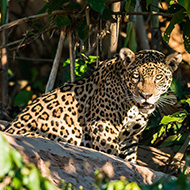Welcome to vnonline.co.uk
vnonline.co.uk provides the veterinary nursing profession with the latest news and industry developments, as well as events, resources, learning materials and careers.
Our website is dedicated to veterinary nurses and we strive to provide a platform where you can voice and explore your interests.
Not a member yet? Sign up for free!
Register for free with vnonline.co.uk to gain unlimited access to news, resources, jobs and much more!







 The Federation of Independent Veterinary Practices (FIVP) has announced a third season of its podcast, Practice Matters.
The Federation of Independent Veterinary Practices (FIVP) has announced a third season of its podcast, Practice Matters.
